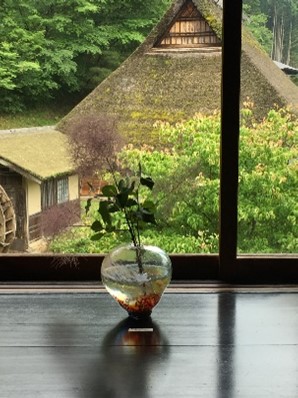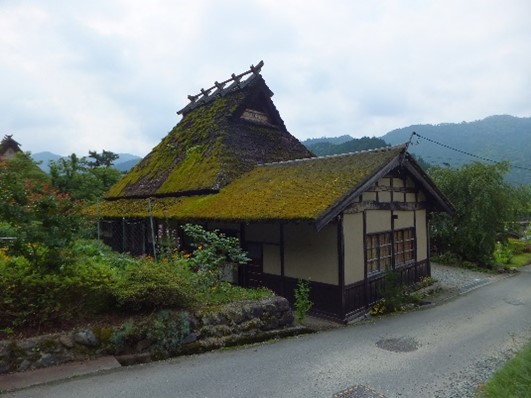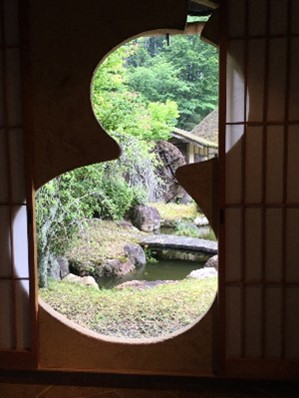by Antonia Vesting
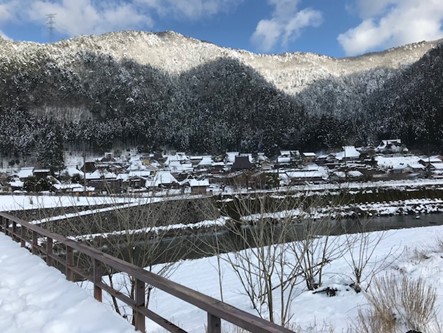
Copyright ©Antonia Vesting 2020
During the winter semester of 2019/20, I studied at Waseda University’s “Transnational and Interdisciplinary Studies in Social Innovation Program” (TAISI Program) in Tōkyō and conducted fieldwork for my upcoming bachelor’s thesis. I conducted interviews with lifestyle migrants living in Miyama town, Kyōto Prefecture and one expert interview with researchers at the DIJ in Tōkyō.
Lifestyle migration can be broadly defined as “the relocation of people within the developed world searching for a better way of life” [1]. In Japan, one further distinguishes between U-turn migration (returning to one’s rural hometown or area) and I-turn migration (moving to a place far away from one’s hometown or the home of one’s parents). In my research, I focused on l-turn migrants.
In 2016, I had spent three months studying Japanese at a Japanese Language School in Kyōto. Through my landlady, who is a Miyama l-turner herself, I was able to visit Miyama several times and was impressed by the innovativeness of individuals and groups who addressed problems such as abandoned woodlands, spreading monocultures and local infrastructural deficiencies. Thus, I became interested in the interconnection of sustainability and innovation of lifestyle migrants in Miyama and later chose this as a topic for my bachelor’s thesis.
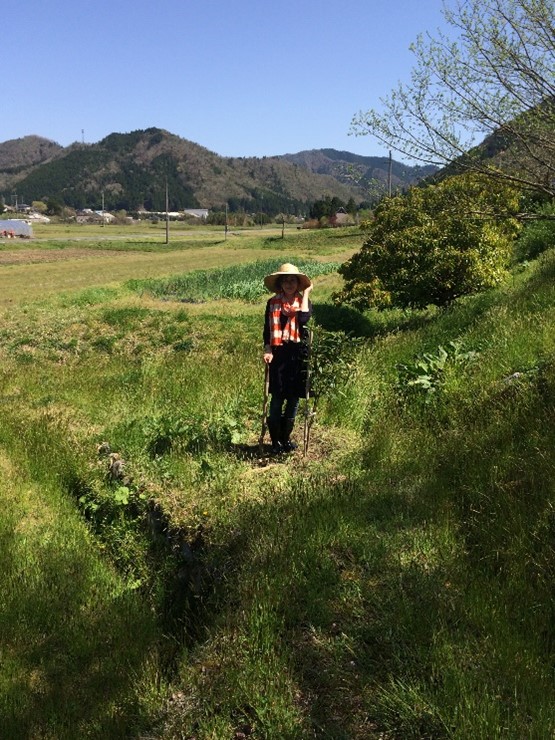
Copyright © Antonia Vesting 2016
My former landlady and friend introduced me to three Miyama I-turners and one I-turner and her friend, a long-term visitor reorienting herself after taking a break from work. After getting in contact with possible interlocutors, during a trip to Miyama in early February, I came back to conduct interviews in March 2020. I was accompanied by my professor for rural development at Waseda.
The results of my research confirmed many findings of the existing literature about lifestyle migration to rural Japan. When it comes to the relocation process, surprisingly, social media did not play a major role for my research participants. For them, connections to locals, as well as other I-turners, companies and other institutions in Miyama were more important. One also received financial support. Adjusting to simpler living standards was not easy for everyone and I wondered whether this is especially the case for older lifestyle migrants.
The interviews also showed that social networking and good relations with locals are the key for a successful life in Miyama. The newcomers actively try to participate in community life by presenting their ideas and visions. They think about their own future and the future of their community and actively and creatively engage in solving problems, often taking sustainability into consideration. However, obstacles remain as newcomers struggle to present their ideas to locals and implement them.
Migrants not only make use of local (traditional) resources and use them in new ways to create a path to the future, but they also use resources from the cities, thus building networks between rural and urban areas. At times they are entrepreneurial and innovative, but in most cases, it is not discernable that their entrepreneurial activities promote social change. Nevertheless, I-turner contribute to sustaining their community.
If I-turners choose to remain in one location in the long-term depends on how long they have already been settled there and how the region and living conditions change in the future. Miyama attracted new residents through its relative proximity to Kyōto – even though it is only accessible by car or bus – and rich natural and cultural amenities suggesting a specific way of life. But depopulation, neglect or climate change affect the satoyama landscape. There is still a lot to be done to preserve Miyama’s attractiveness.
Copyright © Antonia Vesting 2016
[1]
Benson, Michaela / Karen O’Reilly (2009): „Migration and the search for a better way of life: a critical exploration of lifestyle migration”. In: Sociological Review 57 (4), p. 609.
Antonia Marie Vesting is a MA student in Japanese Studies at Freie Universität Berlin. She received her bachelor’s degree from Hamburg University with a thesis on “Lifestyle-Migration, Sustainability and Innovation in rural Japan: An Exemplary Case Study of a Community in Kyōto Prefecture.”

